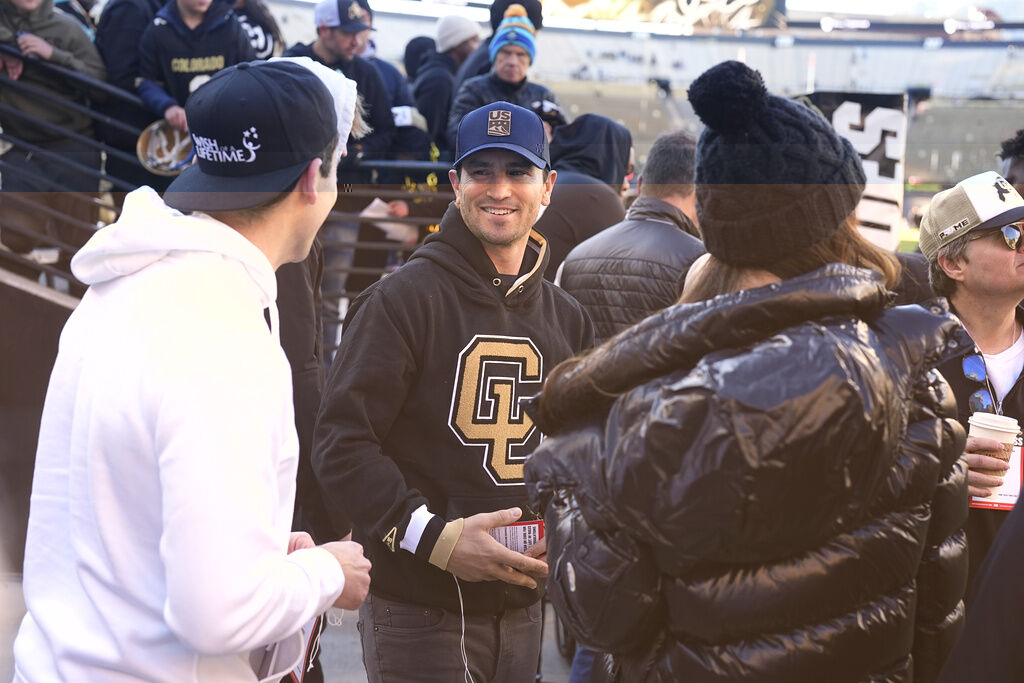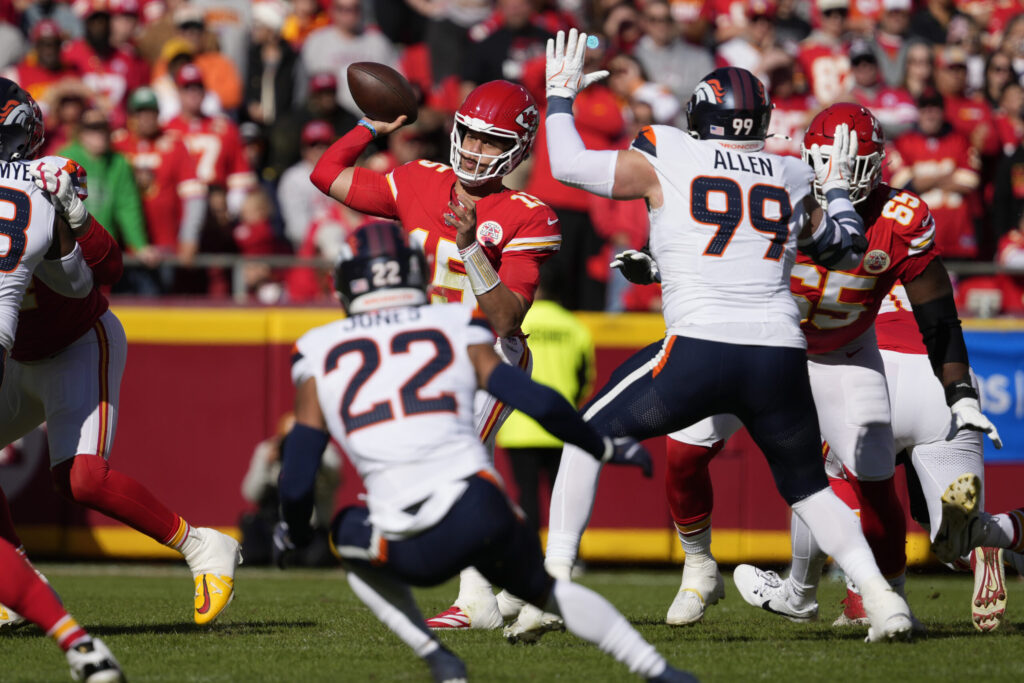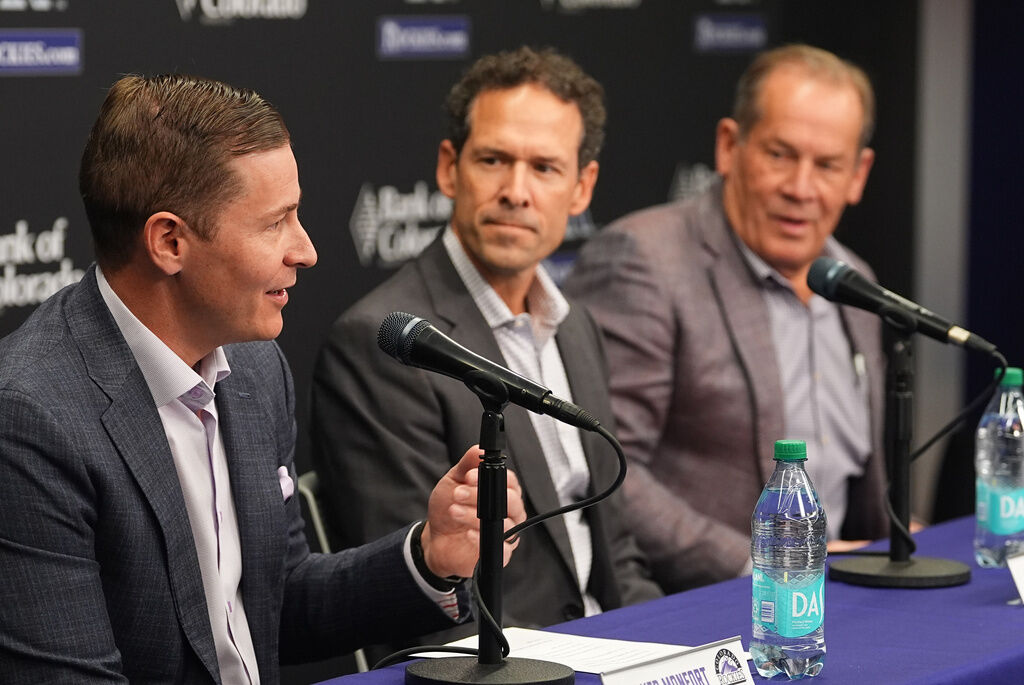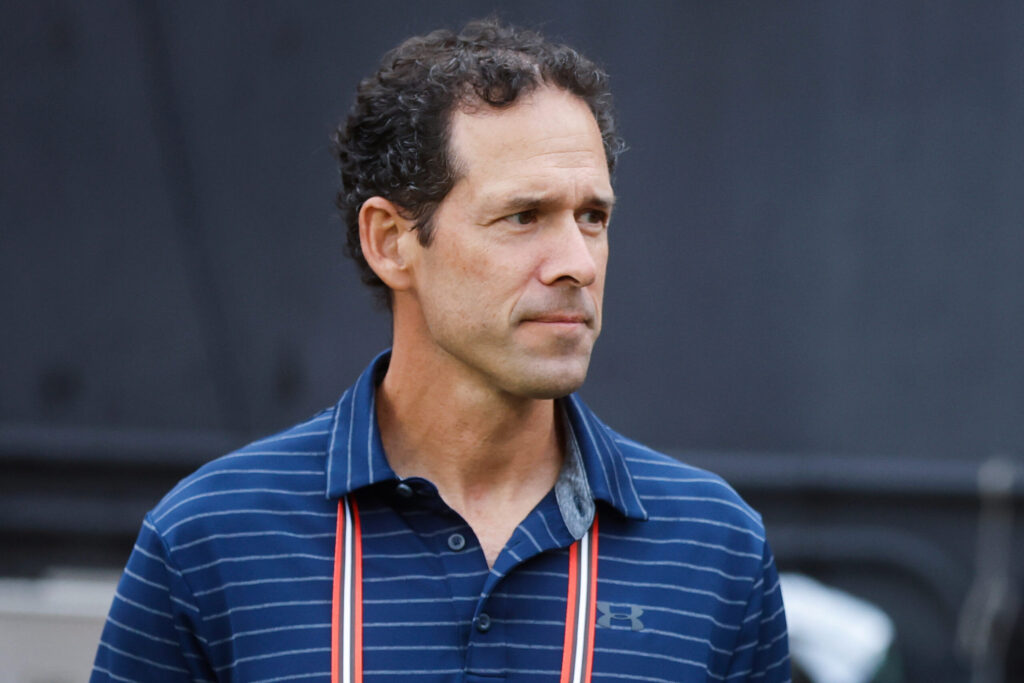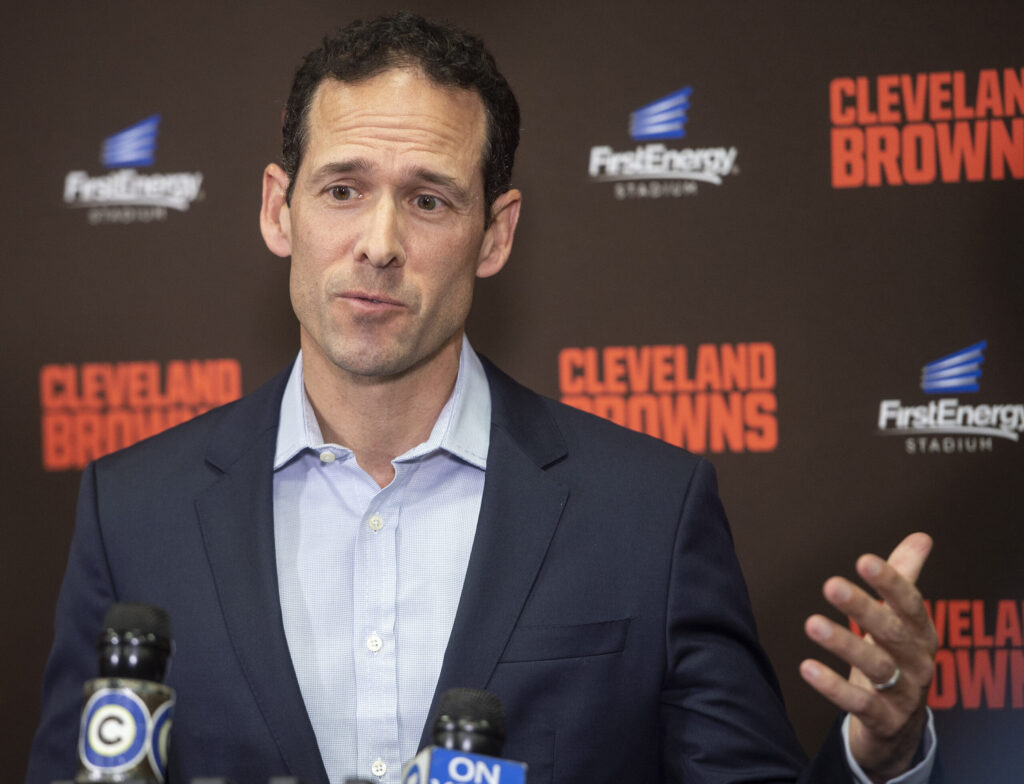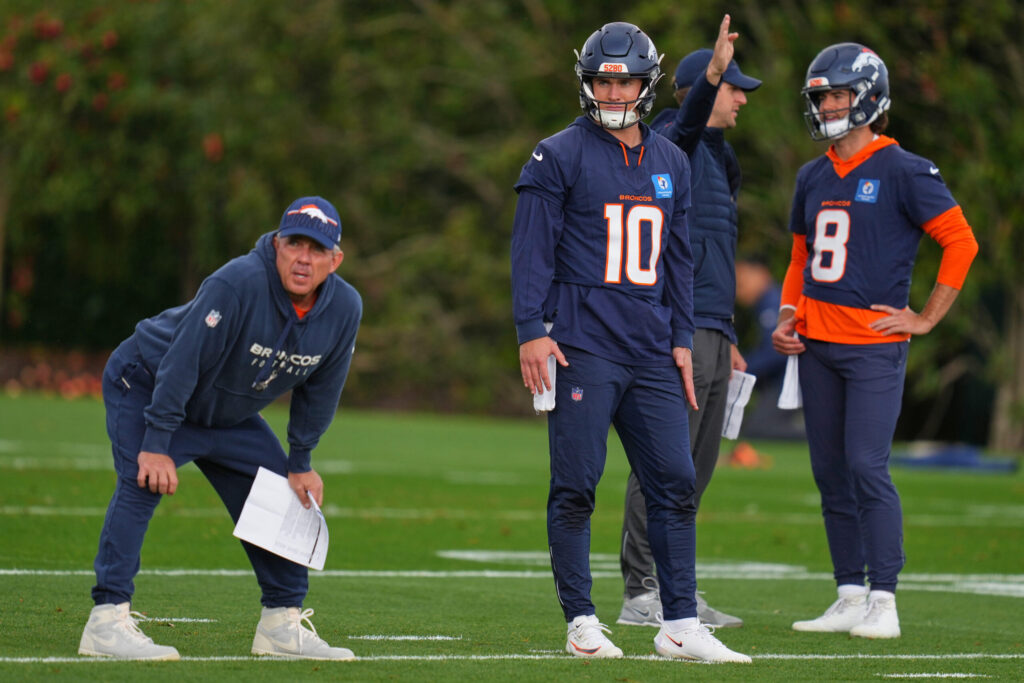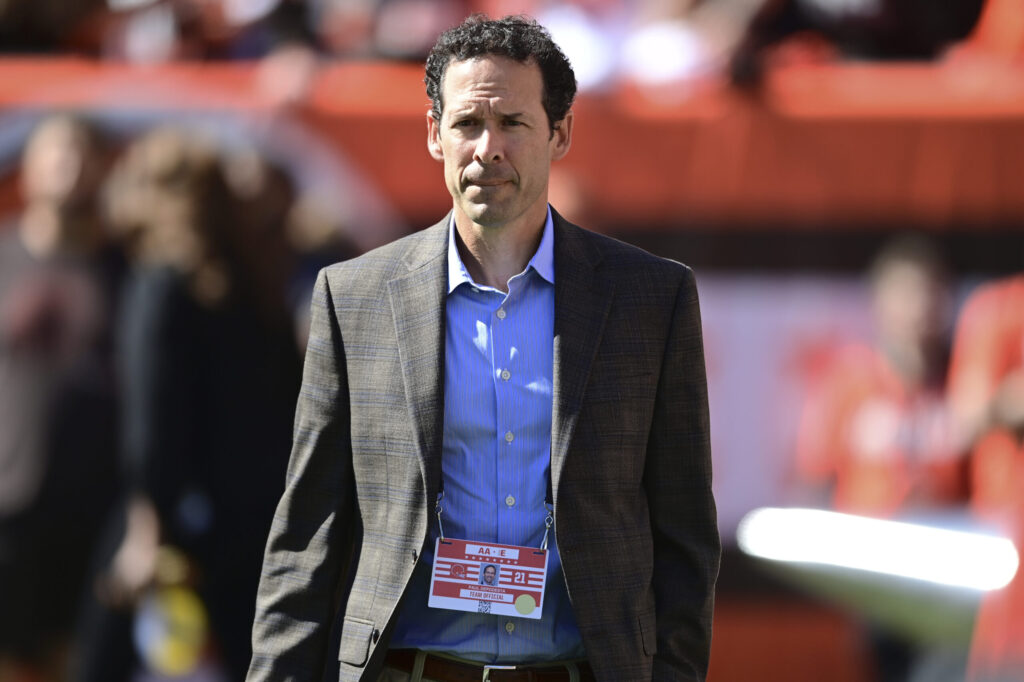Paul DePodesta’s ‘Moneyball’ approach could benefit Rockies | Kevin’s take
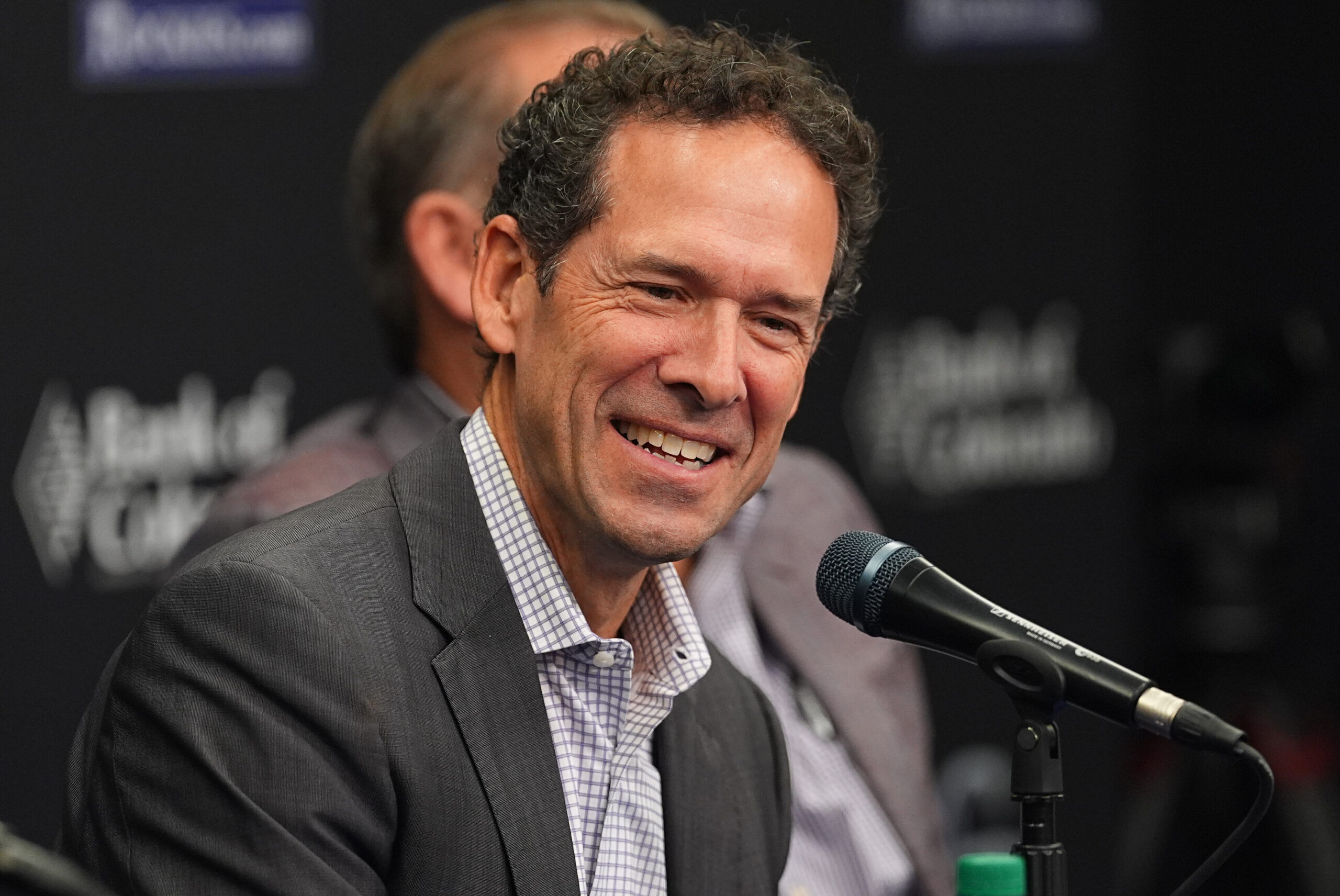
There’s an interesting observation in the book “Moneyball” about Paul DePodesta that I simply had to ask him about recently.
In Las Vegas, in the middle of a room where National League executives were each answering reporters’ questions in a team-focused scrum-like session, the Rockies were getting more attention than normal at this year’s Major League Baseball General Managers meeting.
The reason? DePodesta was not only taking over as president of baseball operations for the Rockies, but he was also back in MLB after nearly a decade in the front office with the NFL’s Cleveland Browns.
There were two main lines of questions for DePodesta from reporters outside of Denver. One focused on the Browns, including the Deshaun Watson contract debacle, while the other centered around his Herculean task of bringing the Rockies back into potential postseason contention.
I looked around, wondering when someone would bring up the Jonah Hill character based on DePodesta and the entire “Moneyball” movie. I kept thinking the next question asked would be about the Athletics and his time there, which inspired the book and the movie and a different way of thinking in baseball.
Nobody bit so well into the hour-long time together, I decided to finally broach the subject.
“Paul, there’s a passage in the ‘Moneyball’ book that says you are ‘fascinated by irrationality.’ Is that true and, if so, why?”
It didn’t take long at all after I uttered those words that DePodesta smiled and explained why the quote was not only accurate, but the history behind it as well.
“I was an economics major,” DePodesta explained. “I actually did all the coursework to do a double major, also in psychology. And the reason for that was that I got to take an economics class my senior year in high school, and for the first time, academically, I thought, Wow, this is something that actually applies to the real world. This is how people make decisions. This is how the world works. So I thought, I definitely want to major in this in college.
“And then, after maybe the first or second semester of economics in college, I thought, ‘Okay, I think I’m a pretty rational person, but I’ve never made decisions this way.’ And a lot of these theories are very elegant, but they don’t necessarily describe exactly how individuals make decisions.
“So that’s when I started taking psychology, and then then just got really fascinated between the interplay of the two, of what’s rational and what’s not, and whether it’s for an individual or for a group or for a society, etc.”
It’s an interesting side of DePodesta, and one that could potentially serve him well with the Rockies, an organization that many will argue has been irrational for years now.
The double play of economics and psychology could be a perfect background for a man who has been charged with rebuilding the major and minor league rosters and infrastructure for the Rockies. It’s not only going to take money to accomplish the task, but it’s also going to take understanding what has worked in the past and how to help those in the Rockies organization comprehend why change is good as the franchise moves into the future.
It’s also a good one-two punch for someone who will be involved with bringing free agents to Colorado with the message that they aren’t signing with a last-place organization, but rather one that is looking to finally turn things around.
“We have to be both open-minded and aggressive when it comes to acquiring talent,” DePodesta said. “I think the short answer is free agency will certainly be part of our toolbox.”
Economics and psychology could fit together well in today’s MLB front offices, but DePodesta admitted that the two didn’t always go hand-in-hand.
“I actually joked to Michael Lewis (author of “Moneyball”) about this years later. I said, at the time, in order to graduate with both degrees, I had to write a thesis that would incorporate both and satisfy both departments (economics and psychology),” DePodesta recalled. “And I did not have success convincing people in either department that sort of enough of their topic would be represented in the paper, so I decided not to write one.”
Behavioral economics would later evolve into a topic that would inspire Nobel Prize winners. DePodesta shrugs that off, joking he might have been ahead of his time.
For Colorado, however, DePodesta’s timing couldn’t be more perfect in Denver as the man who is fascinated by irrationality looks to shake off some of the irrational ways of the past at 20th and Blake.






